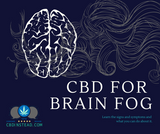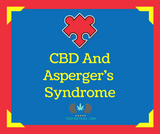The battle towards safe access to cannabis as a medicinal alternative is far from over. It’s true, 29 states at this point have given access to their citizens, but we all know there are more problems the higher you go up the food chain. It is so vital for all of us to be our sharpest during this time, because the slightest falter, such as using the wrong word, could jeopardize years of progress.
Often you have probably heard the term, “non-psychoactive,” when referring to CBD oil. Going through our articles, even we have used this term to describe cannabidiol. When we say “non-psychoactive,” we mean that it doesn’t get you high like THC. But the realization that language is so important has shown us that this may not be the best way to represent that. As a wise man once said, “Be the change you wish to see.” One of the most significant contributions we can make to the cannabis movement is using the correct language when talking about its incredible healing potential.
When talking about cannabis, the words you use are crucial to the dialogue. Just think, if you were to explain to someone that your stoner friend is puffing on some sweet ganja for their anxiety, the type of words you’re choosing to use can hurt the movement you’re trying to help progress. Though, we would love for the stigma to shy away from these words, overusing them in conversation can do more harm than good for your argument in this situation.
Why Is Language Important

The way we speak affects the way that we think. It’s important we choose our words wisely to be in full control of our thought processes. Not only are you forming your perception through language, but you are also influencing the perception of others as well. Language does not limit our ability to perceive; it only focuses our perception.
The first American linguist studied the Native American’s language finding that it was drastically different from languages he had studied before such as Latin, Greek, and English. He had never heard some of the sounds they made, found strange encoding in their words, and new grammatical categories. He proposed that the linguistic systems they had influenced the minds of the speakers.
This hypothesis is strengthened when you compare the Australian language Guugu Yimidhirr and English. The language Guugu Yimidhirr doesn’t use the terms left or right. Instead, they use more specific locations. This type of communication makes sense considering how left and right can be so confusing. My right or your right? When the Guugu Yimidhirr explain to you where your car is, they may say, “Your car is to the north,” while an English speaker will plainly say, “Your car is over there.” Because direction is so imbedded in their language, they are a more oriented culture than those who speak English.
Professor Lera Borodisky, a cognitive scientists, known for her works on language and cognition, also believes that language can influence your way of thinking. Borodisky states, “…when you're learning a new language, you're not simply learning a new way of talking, you are also inadvertently learning a new way of thinking.” A new way of thinking is the goal we usually have when debating cannabis with naysayers, so could language be the first step?
Why Is Language Important When Talking About Cannabis
Right now, we are enduring an uphill battle towards legalization. This battle has been so difficult is because of all of the misinformation circulating the web. There are still countless amounts of people who aren’t fully educated on marijuana, which means their walls will be up when approached or spoken to.
Most people who are against marijuana are still under the impression that it is a harmful drug. Many may not believe that it hurts bodies, but they still think that someone who uses cannabis is doomed to a life in their mother’s basement playing World of Warcraft until they can start collecting Social Security.
By changing the way we speak about marijuana, we create a stronger argument that can help people all over the world have access to a safer medication.
Reducing The Negative Stigma On Marijuana

Some of the language we use in the cannabis community has been getting a second look considering how popular this movement has become. Of course, some of them may seem a little far-fetched, but could that just be because of desensitization? As a society, we have to decide together whether or not these terms need changing, but the first step towards figuring it out is cracking open the dialogue and talking about it.
Non-Psychoactive
There are several terms and phrases that we commonly use that may not be the best way to explain what we need. The first example being, “non-psychoactive.” While CBD doesn’t get you high, saying that is non-psychoactive isn’t necessarily true. This doesn’t mean you are going to get that euphoric haze when you use it, but it is going to affect your brain.
The word psychoactive means affecting the mind. When you take CBD, your mind is going to be affected. When you do yoga, when you have sex, and when you eat you are also experience a psychoactive effect. By saying that CBD isn’t psychoactive as a selling point, we are accidentally suggesting that psychoactive means bad and that CBD doesn’t affect your brain. Both of these things just aren’t true.
Cure
When talking about marijuana, using the word cure is also very misleading. At CBD Instead, we do our best to choose particular language that doesn’t promise someone a miracle that may not happen. Yes, cannabis has proven time and time again that it can help treat symptoms through labs as well personal testimonies from cannabis users. However, there is not enough evidence to support the claim that it could, in fact, cure a disease. Can cannabis cure a disease? We don’t know for sure. This uncertainty is why it is essential to use words that are a bit more truthful such as treat, reduce, and help.
Pot and Weed
When talking about cannabis with the effort of progressing the movement, staying away from street names will make you seem more reputable. Unfortunately, there is an image that is cast down on the “typical stoner.” By using the terminology commonly used by what others see as “burnouts” might make you seem like you are less worthy to listen to. Even when you are only talking about recreational marijuana, the choice of your words is going to dictate the outcome of the conversation.
Risk-Free and No Crazy Side-Effects
This kind of speech is misleading and can make people turn ill because they weren’t aware there was a possibility of things going south. When you compare cannabis to other medications, it does seem like there are no risks. Marijuana won’t kill your liver, but some people are allergic to it. It’s important to also talk about the side-effects and risks involved with talking about marijuana because transparency is key to reputability. If you only talk about how great marijuana is, why would they believe a word you said? Understanding that everything has its downfalls, and nothing is perfect will help you in the long run when fighting for our rights to safe access.
Recreational Use and Marijuana
These two terms are used all of the time, to the point that people are continually googling them to learn more about cannabis. These terms aren’t entirely blacklisted by the community, though many think that these terms are outdated and surround cannabis with another shell of negativity.
Recreational use has been questioned as a term because many people think of children as well as recklessness when they hear it. These are two things we don’t want cannabis to be associated with in the least, so this can be a great point. The term, “For Adult Use,” has been thrown around, however, wouldn’t that be medical as well?
The term marijuana has deep seeded roots that lead towards racism. Marijuana wasn’t a term used until the 1920’s and 30’s when anti-cannabis laws were starting to appear in states. The politicians began to use the term marijuana to affiliate it with the Mexican immigrants they were so against. Considering it was a time when people were getting wild with jazz music, many white Americans began to associate minorities with corruption because of their heavy link to the big bad marijuana. This word is a symbol of racial prejudice and prohibition, which are the opposite of what the cannabis community stands for.
These two terms are being brought to light and heavily discussed, and many alternatives are being proposed. The issue we face today is that these two terms are used heavily when searching for information. Websites like ours that use this outlet of communication to spread information and knowledge are bound to the words that people are looking for. Taking away these popular terms from the overall vocabulary could inhibit someone who is less educated on the subject from learning more. You can start these changes, and eventually, the world will follow suit.

No Need To Overbear
There is a fine line between being careful and understanding the words you use are essential and policing every sentence you read online. Yes, language is imperative when it comes to how we think, however, you shouldn’t overdo it. Someone who says cure most likely isn’t trying to be manipulative, and saying the word marijuana doesn’t make you a racist.
If you believe that someone has worded something poorly that may bring confusion or misconceptions, putting them on blast isn’t going to help anyone. It’s going to make you look oversensitive and add an extra layer to the stigma that already exists. Just like how our words are important with talking about cannabis, they are just as important when talking with people. Choose kind words that explain your concern, and back off if they get defensive. No one will learn if they don’t want to.
What Do You Think?
We would love to hear your opinion on these phrases listed as well as ones you have heard or read. Are there any that we missed that you would like us to talk about? Leave suggestions and comments below!













